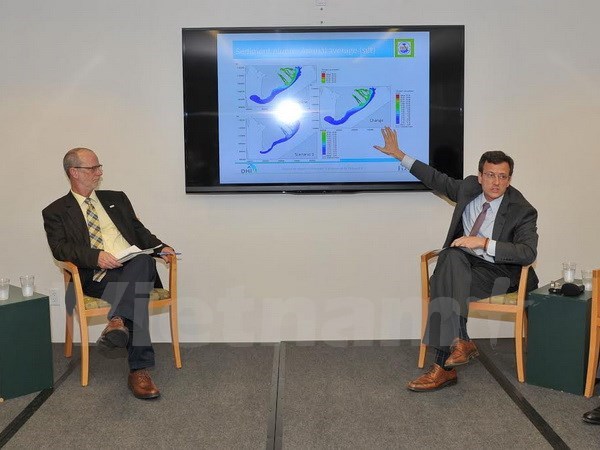How climate change and water management are becoming issues of national security in Vietnam and solutions for the country were the topic at a panel discussion held by the Stimson Center in Washington DC in late May.

Attending the event were Richard Cronin, Director of the Southeast Asia Program at the Stimson Center; Aaron Salzberg, Special Coordinator for Water Resources at the Bureau of Oceans, Environment, and Science Affairs at the Department of State; Todd Johnson, Forestry and Climate Change Advisor for USAID Asia’s Office of Technical Services; and Brian Eyler, Deputy Director of the Southeast Asia Program at the Stimson Center.
Panelists pointed out the main reasons for the most serious drought and saline intrusion in the past 100 years in the Mekong Delta.
According to them, the delta is one of the places worst hit by El Nino – the unavoidable impact of climate change.
The ineffective management of water resources also leads to drought and saline intrusion.
They said that irrigation and hydropower systems in the region are operating inefficiently. The Dong Thap Muoi (Plain of Reeds) and Long Xuyen Quadrangular, areas which act as natural water reserves for the region, are running out of water due to the overuse of water for rice planting.
China’s construction of big hydropower dams in the upper course of the Mekong River is another reason, they stated, suggesting countries in the lower course of the river ask China to inform them of its water discharge plans to actively regulate water resources.
They also recommended that the Mekong Delta plants trees and crops which are capable of growing in salt water and innutritious soil, and expand aquatic farming.
VNA